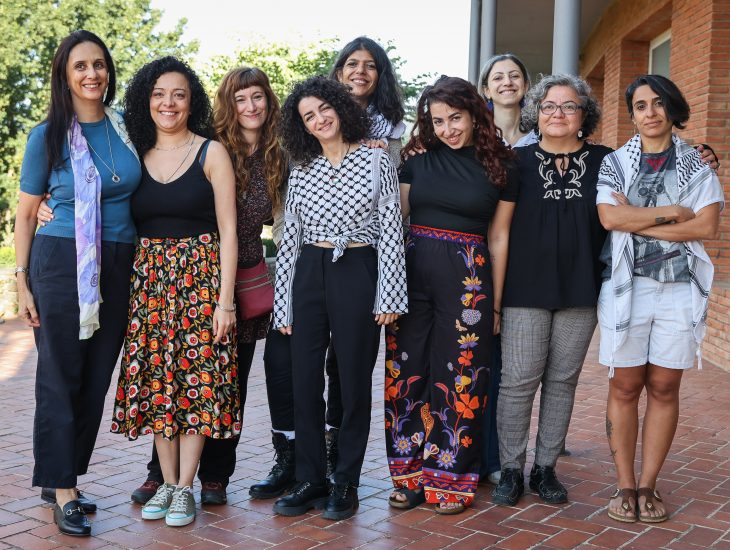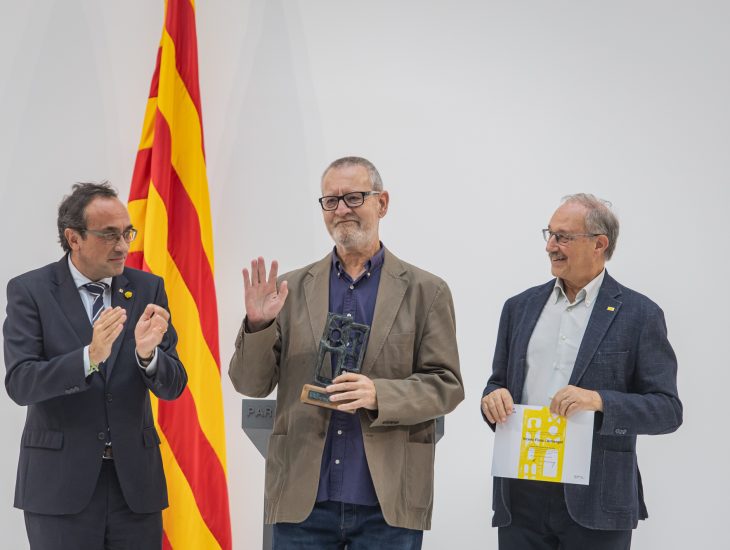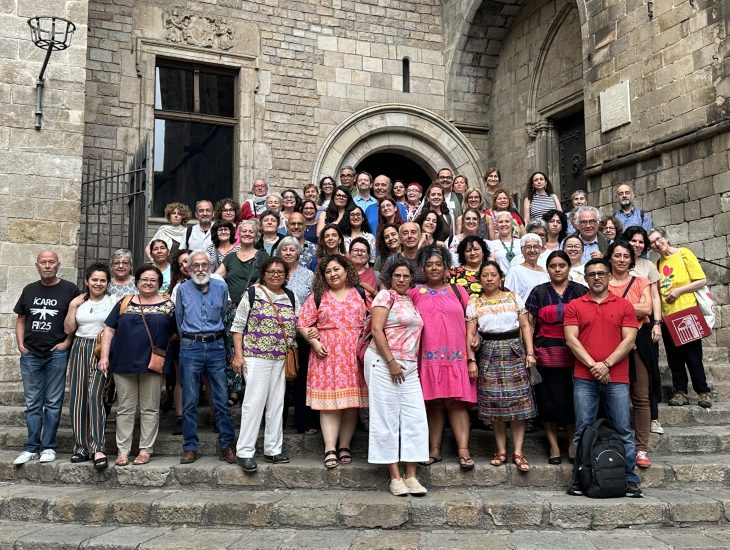The Governing Board of the International Catalan Institute for Peace has unanimously decided to grant the 2014 ICIP Peace in Progress Award to the Women’s International League for Peace and Freedom (WILPF) “for its century-long involvement in the work of women for peace, its commitment to disarmament, the defense of human rights and the persistence to obtain the recognition of the role of women in the building of peace”.
The Women’s International League for Peace and Freedom was a pioneer in the creation of an internationalist pacifist feminism and is a model for all initiatives of women for peace.
ICIP’s Peace in Progress Award is granted annually and consists of public recognition, a sculpture created by the Nobel Peace Prize winner, artist and activist Adolfo Pérez Esquivel, called Porta del Sol, and a financial prize of 4,000 euros. The award ceremony will take place during the first trimester of 2015 in Barcelona.
100 years of struggle for peace and disarmament
The origins of the Women’s International League for Peace and Freedom date back to 1915. During the First World War, 1,200 women from twelve different countries celebrated the First International Congress of Women in The Hague to protest against the war, elaborate a peace strategy and call for the immediate mediation of neutral countries. That congress was the starting point for an internationalist and pacifist feminism, and led to the founding of the League, the oldest and most persistent women’s organization in its commitment to peace.
WILPF’s founding objectives were –and still are– “”to bring together women of different political views and philosophical and religious backgrounds determined to study and make known the causes of war and work for a permanent peace.”
At present the League is headquartered in Geneva and New York and is present in 30 countries. Throughout its history, WILPF has sent peace delegations to, among other places, the Balkans, Palestine, Mexico, Egypt, Cuba, Haiti, Vietnam, Israel, Chile, Jordan, Lebanon, China and Iraq. It has also organized meetings and exchanges of experience between women of countries and communities in conflict, for example, Arab and Jewish women in Israel (1958), women from the US and the USSR (1961) or from the US and Vietnam (1971).
The organization also played a key role in the elaboration of UN Security Council Resolution 1325 (2000) on women, peace and security, or of the Arms Trade Treaty, and is a member of various networks and international campaigns.
Two of its presidents, Jane Addams (1931) and Emily Greene Balch (1946) have been awarded the Nobel Peace Prize.
In order to carry out its work, WILPF currently has various programs: Reaching Critical Will (a disarmament program that monitors multilateral disarmament processes, conducts research, and facilitates the participation of civil society in international meetings and conferences); Peace Women (a women, peace and security program that promotes the participation of women in peacebuilding and conflict resolution processes); and Human Rights (a program that works on integrating issues of peace and security with women’s human rights).
Previous recipients of the ICIP Peace in Progress Award
The ICIP Peace in Progress Award has reached its fourth edition this year. The first edition of the award, in 2011, recognized the struggle of conscientious objectors and “insubmisos” (people who refuse to do military service or any substitute social work) represented by Pepe Beunza, the first conscientious objector to compulsory military service for ideological reasons in Spain.
In 2012, the ICIP Peace in Progress Award was granted to five Madres de Soacha (Mothers of Soacha) for their work in favor of peace and human rights in Colombia. With this award, ICIP wanted to recognize their courage and perseverance in pursuit of truth, justice, and reparations for the killings of their children by the State security forces, and other cases of extrajudicial executions known as “false positives.”
In 2013, the ICIP Peace in Progress Award was granted to the ex-general born in Belgrade, Jovan Divjak, for his courage in the defense of Sarajevo during the Balkans War and his work in favor of the victims of that conflict.
Previously, in October 2011, ICIP granted an extraordinary edition of the award to the Parliament of Catalonia for representing the continuity and legacy of the institutions “Pau i Treva” and “Consolat de Mar”.
30.01.2014




